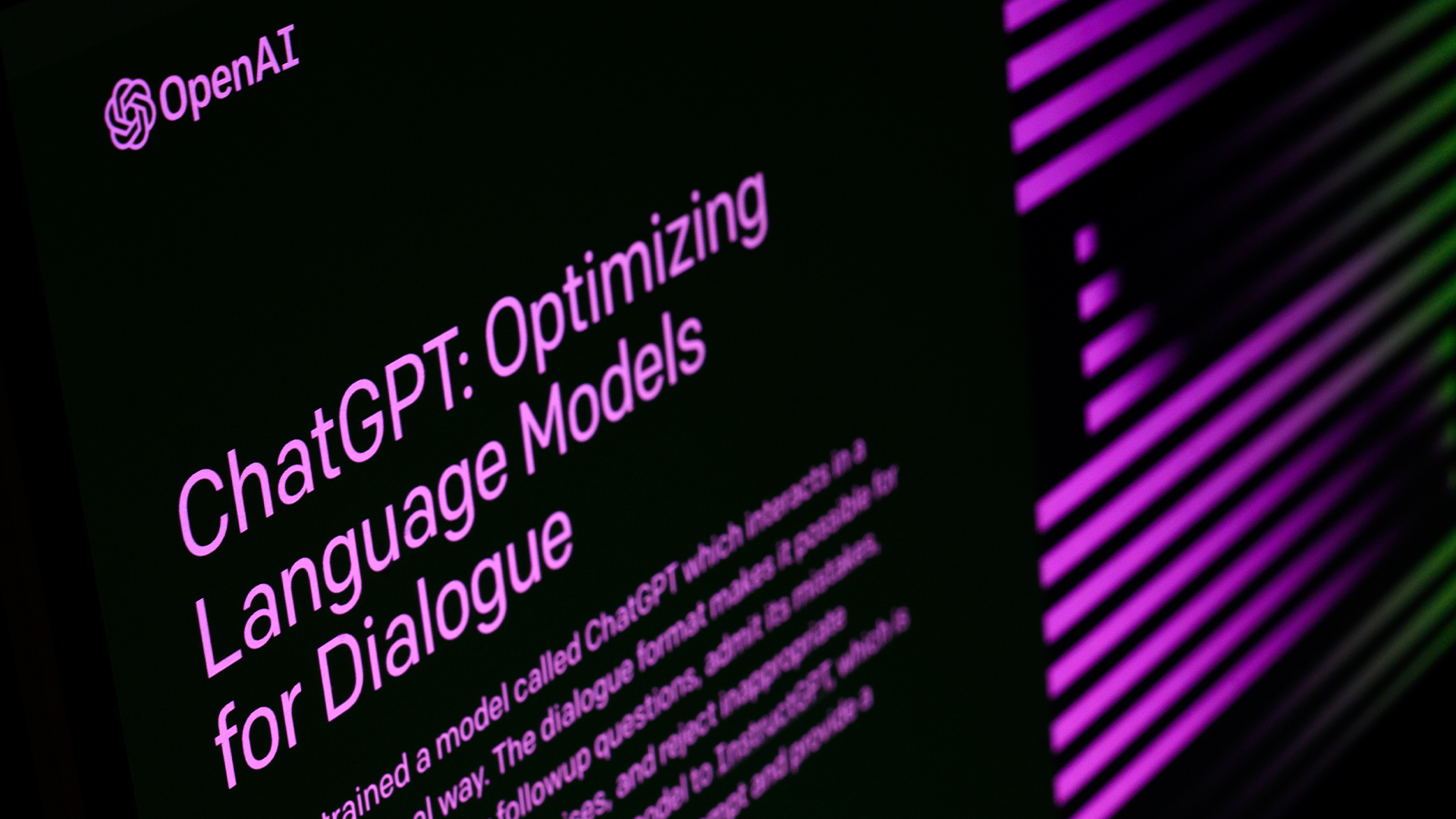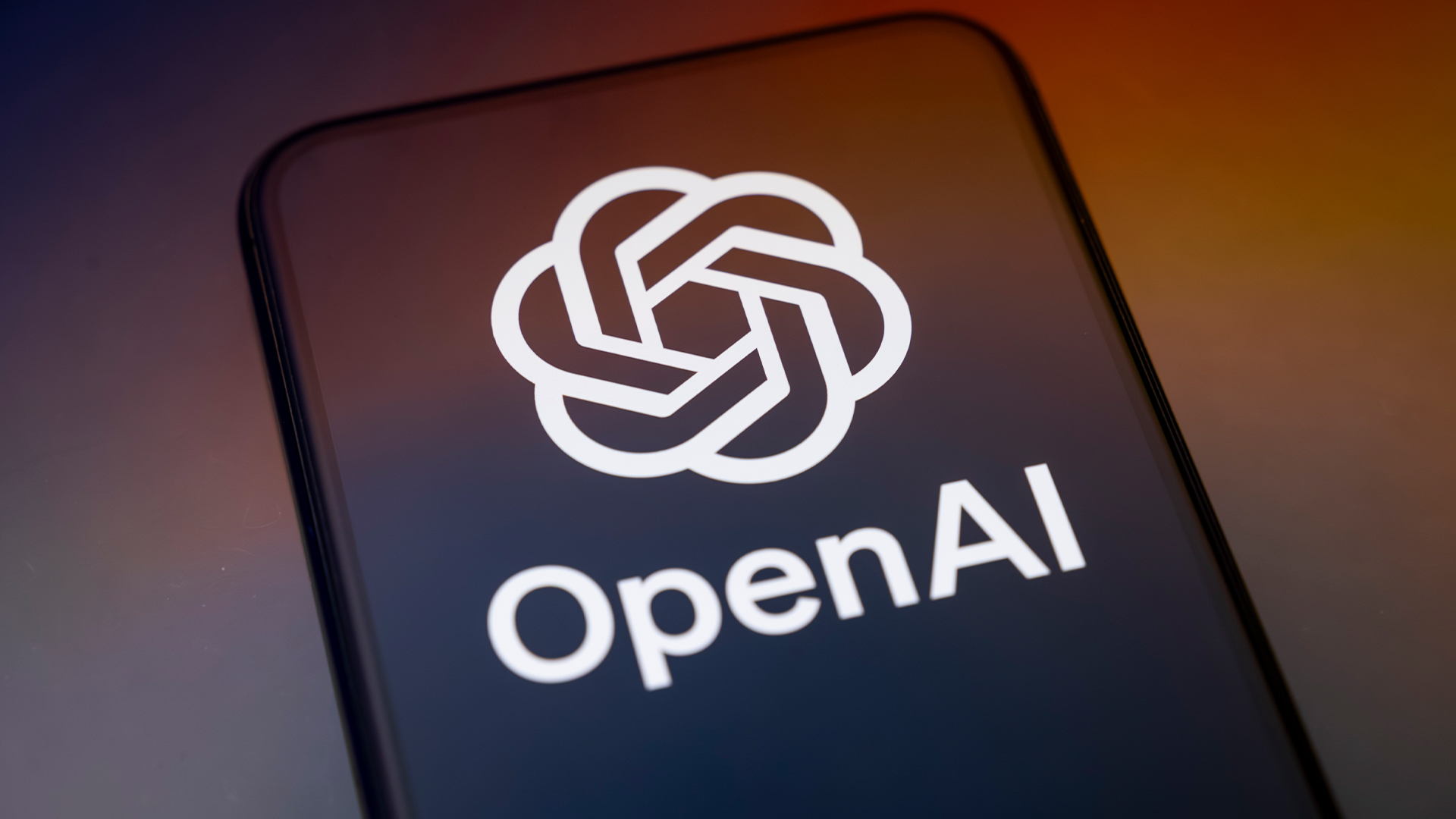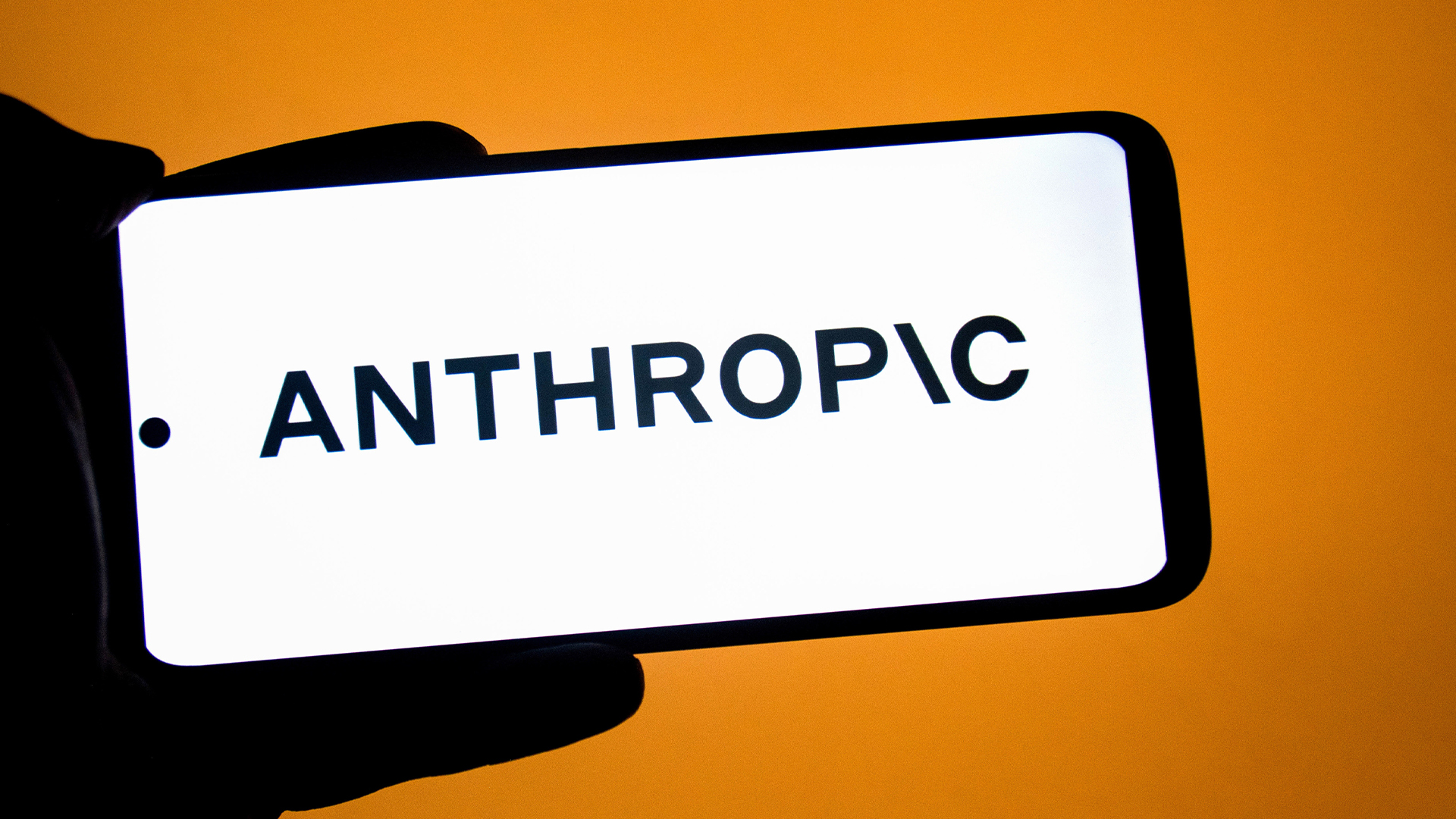OpenAI just revealed what people really use ChatGPT for – and 70% of queries have nothing to do with work
A study of consumer-level ChatGPT usage suggests only a small percentage of people are using it for coding


More than 70% of ChatGPT queries have nothing to do with work, but are personal questions or requests for help with writing.
That's according to a study by OpenAI researchers, academics from top universities, and the US National Bureau of Economic Research (NBER).
Analysis of ChatGPT usage took samples of 1.5 million queries from a "privacy-preserving automated pipeline" in order to examine usage patterns.
"We find steady growth in work-related messages but even faster growth in non-work-related messages, which have grown from 53% to more than 70% of all usage," researchers noted in the paper.
Not only does personal use dominate over professional topics, but when it comes to work-related tasks, writing is a much more common request than coding.
"Computer programming and self-expression both represent relatively small shares of use," the paper noted.
It's worth noting that the study only looked at Free, Plus and Pro ChatGPT messages, not those on Enterprise, Business or Education subscriptions, which will naturally skew the results.
Sign up today and you will receive a free copy of our Future Focus 2025 report - the leading guidance on AI, cybersecurity and other IT challenges as per 700+ senior executives
However, in a blog post, OpenAI noted that "while the study covers consumer plans only, the results still highlight the creation of economic value both at work and outside of work."
"ChatGPT’s economic impact extends to both work and personal life," the post said.
"Approximately 30% of consumer usage is work-related and approximately 70% is non-work — with both categories continuing to grow over time, underscoring ChatGPT’s dual role as both a productivity tool and a driver of value for consumers in daily life."
How people use ChatGPT at home
The most common topics of conversation in ChatGPT were requests for "practical guidance" such as tutoring, how-to advice and brainstorming ideas, as well as "seeking information" as a substitute for search engines.
Other key use-cases included writing assistance, such as for emails, translation. and summarizing documents. Those three areas make up 80% of all interactions with the chatbot.
"About 10% of all messages are requests for tutoring or teaching, suggesting that education is a key use case for ChatGPT,” researchers noted.
That research suggests ChatGPT is finding a foothold in personal use, though that has brought challenges including complaints when the "voice" of the bot changed following a model update.
Besides that, CEO Sam Altman has warned users not to treat the bot as a therapist, as there's no legal confidentiality. Notably, the study showed that only 1.9% of messages were on the topic of relationships or personal reflections.
Nearly half of users were seen to be asking for information to inform decisions, while 40% were "doing" — which the report explained was requesting the bot create output or complete a task — with the rest "expressing", such as sharing how they felt without looking for any specific outcome.
OpenAI said in its post that "shows people value ChatGPT most as an advisor rather than only for task completion."
How people use ChatGPT at work
When it comes to work, eight-in-ten work-related messages were classified into two categories: obtaining or interpreting information and making decisions or solving problems.
That held true across industry and job roles, researchers noted.
"For example, the work activities 'Getting Information' and 'Making Decisions and Solving Problems' are in the top five of message frequency in nearly all occupations, ranging from management and business to STEM to administrative and sales occupations," the paper noted.
Researchers said that the work suggests ChatGPT offers value by boosting worker output by "providing decision support”.
At the same time, the study also suggests ChatGPT isn't particularly popular for coding, with only 4.2% of messages related to programming, the researchers found.
It’s worth noting that many professional programmers may have opted for dedicated tools such as GitHub Copilot rather than using a generalist chatbot, or may be on Enterprise accounts instead.
Make sure to follow ITPro on Google News to keep tabs on all our latest news, analysis, and reviews.
MORE FROM ITPRO
Freelance journalist Nicole Kobie first started writing for ITPro in 2007, with bylines in New Scientist, Wired, PC Pro and many more.
Nicole the author of a book about the history of technology, The Long History of the Future.
-
 The modern workplace: Standardizing collaboration for the enterprise IT leader
The modern workplace: Standardizing collaboration for the enterprise IT leaderHow Barco ClickShare Hub is redefining the meeting room
-
 Interim CISA chief uploaded sensitive documents to a public version of ChatGPT
Interim CISA chief uploaded sensitive documents to a public version of ChatGPTNews The incident at CISA raises yet more concerns about the rise of ‘shadow AI’ and data protection risks
-
 OpenAI admits 'losing access to GPT‑4o will feel frustrating' for users – the company is pushing ahead with retirement plans anway
OpenAI admits 'losing access to GPT‑4o will feel frustrating' for users – the company is pushing ahead with retirement plans anwayNews OpenAI has confirmed plans to retire its popular GPT-4o model in February, citing increased uptake of its newer GPT-5 model range.
-
 What the UK's new Centre for AI Measurement means for the future of the industry
What the UK's new Centre for AI Measurement means for the future of the industryNews The project, led by the National Physical Laboratory, aims to accelerate the development of secure, transparent, and trustworthy AI technologies
-
 ‘In the model race, it still trails’: Meta’s huge AI spending plans show it’s struggling to keep pace with OpenAI and Google – Mark Zuckerberg thinks the launch of agents that ‘really work’ will be the key
‘In the model race, it still trails’: Meta’s huge AI spending plans show it’s struggling to keep pace with OpenAI and Google – Mark Zuckerberg thinks the launch of agents that ‘really work’ will be the keyNews Meta CEO Mark Zuckerberg promises new models this year "will be good" as the tech giant looks to catch up in the AI race
-
 Half of agentic AI projects are still stuck at the pilot stage – but that’s not stopping enterprises from ramping up investment
Half of agentic AI projects are still stuck at the pilot stage – but that’s not stopping enterprises from ramping up investmentNews Organizations are stymied by issues with security, privacy, and compliance, as well as the technical challenges of managing agents at scale
-
 What Anthropic's constitution changes mean for the future of Claude
What Anthropic's constitution changes mean for the future of ClaudeNews The developer debates AI consciousness while trying to make Claude chatbot behave better
-
 Satya Nadella says a 'telltale sign' of an AI bubble is if it only benefits tech companies – but the technology is now having a huge impact in a range of industries
Satya Nadella says a 'telltale sign' of an AI bubble is if it only benefits tech companies – but the technology is now having a huge impact in a range of industriesNews Microsoft CEO Satya Nadella appears confident that the AI market isn’t in the midst of a bubble, but warned widespread adoption outside of the technology industry will be key to calming concerns.
-
 DeepSeek rocked Silicon Valley in January 2025 – one year on it looks set to shake things up again with a powerful new model release
DeepSeek rocked Silicon Valley in January 2025 – one year on it looks set to shake things up again with a powerful new model releaseAnalysis The Chinese AI company sent Silicon Valley into meltdown last year and it could rock the boat again with an upcoming model
-
 Workers are wasting half a day each week fixing AI ‘workslop’
Workers are wasting half a day each week fixing AI ‘workslop’News Better staff training and understanding of the technology is needed to cut down on AI workslop
